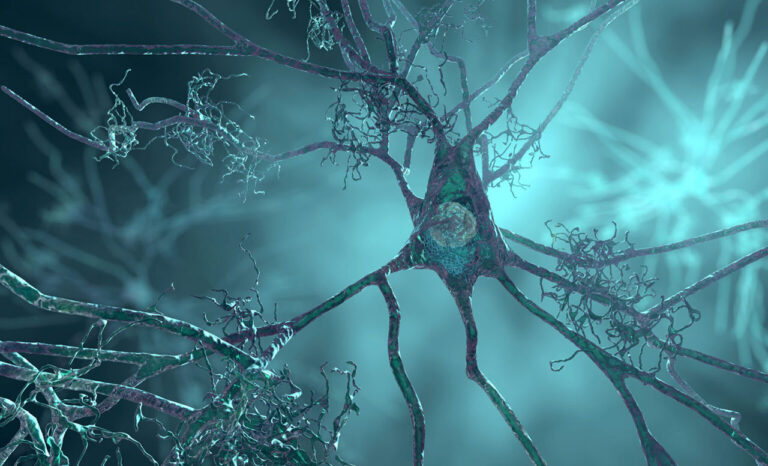
Among autoimmune diseases, chronic inflammatory demyelinating polyneuropathy (CIDP) is a rare neurological disorder that can be difficult to diagnose. Although the exact cause of this condition is unknown, many patients have been able to successfully manage their symptoms with proper medical treatment and care.
CIDP stages are slow and progress over time. Each stage presents unique challenges and treatment options that can affect one’s quality of life. Understanding these stages can help you recognize symptoms and seek timely intervention.
In this article, we will explore the different types and stages of CIDP and provide tips on navigating life with this condition.
CIDP is a chronic condition with symptoms that develop over eight weeks or longer and last several months to several years. This autoimmune disease attacks the myelin sheath (the fatty covering that protects nerve fibers), causing peripheral neuropathy over time.
The prognosis of CIDP stages can differ significantly based on various factors:
- How soon treatment begins after the onset of the condition
- How a patient responds to the treatment
Since CIDP symptoms progress slowly and the disease is difficult to diagnose, proper treatment and therapy may not be provided for several months or even years.
If treatment is delayed, a patient’s response to therapy may not be as effective in CIDP’s final stages. Irreversible nerve damage or permanent disability may have already developed.
Speak to a Specialist about IVIG
Types of CIDP
CIDP can be categorized into three types. Each type of CIDP may have different stages, symptoms, treatment options, and management strategies.
Let’s examine these types more closely.
Progressive
Some CIDP cases can be progressive, meaning symptoms worsen over time. This type is characterized by a gradual decline in motor function and strength, leading to increased disability. Early intervention and consistent treatment are essential to manage progress and stabilize symptoms.
Recurrent
Others are categorized as recurrent, where the disease appears in episodes that come and go. Stages of CIDP in this type may present as remission and relapse periods, making it challenging to predict disease activity.
During flare-ups, symptoms can intensify and cause significant discomfort. Patients experiencing recurrent CIDP stages require ongoing treatment to manage symptoms and prevent future episodes from occurring.
Monophasic
CIDP can also be marked by a single incident that lasts one to three years and then does not recur. This type may resolve on its own.
However, it may lead to temporary nerve damage in the final stages of CIDP, and some individuals may still experience lingering effects. Regular follow-up with healthcare providers is essential to monitor changes and ensure appropriate care.
Stages of CIDP

Understanding various CIDP stages is crucial for effective management of the condition. Each stage has a unique set of symptoms and progression patterns that require tailored approaches.
Here is an overview of these stages.
1. Initial Stage
The initial stage of CIDP begins gradually, often unfolding over weeks to months. During this time, symptoms may start subtly and progressively intensify.
Symptoms of this stage include:
- Weakness in the limbs, typically starting in the legs
- Progression of weakness to the arms
- Numbness and tingling sensations
- Sensory abnormalities
- Asymmetric symptoms
Early diagnosis and intervention are crucial. Typical treatment options include corticosteroids, IVIG, plasma exchange, and immunosuppressive therapies. Treatments in the initial CIDP stages aim to stabilize symptoms and prevent further nerve damage.
2. Progressive Stage
The progressive stage follows when initial symptoms continue to worsen. Individuals may struggle with daily activities as their condition advances.
This stage is often marked by:
- Continued weakness and sensory symptoms
- Difficulty performing everyday tasks
- Development of muscle atrophy in advanced cases
- Increased fatigue and pronounced abnormal reflexes
Addressing the progressive stages of CIDP requires a multi-faceted treatment plan. Options often include adjusting medication regimens, incorporating physical therapy to maintain mobility, and ongoing monitoring by healthcare professionals.
3. Plateau Stage
The plateau stages occur when CIDP symptoms stabilize without significant improvement or worsening. This phase can vary in duration, lasting from weeks to months and sometimes even occurring before treatment starts.
At this stage, individuals may experience:
- Stability of symptoms
- No significant improvement in function
Management during the plateau stage focuses on monitoring symptoms and maintaining stability. Healthcare providers may recommend physical therapy to help maintain function and prevent further decline. Regular assessments will help guide future treatment decisions.
4. Remission Stage
Remission is one of the final stages of CIDP. It usually happens when patients follow their treatment plans. They may experience significant improvements in CIDP symptoms in the remission stages. However, some may still experience residual weakness or sensory disturbances.
Common signs at this stage include:
- Noticeable reduction in muscle weakness
- Improved coordination and mobility
- Decreased numbness or tingling
- Enhanced overall energy levels
During the remission stages of CIDP, the goal is to maintain optimal function and prevent future deterioration. Ongoing treatment and follow-up appointments are crucial to sustain recovery and swiftly manage any sign of regression.
5. Chronic Management Stage
For those with ongoing CIDP symptoms, chronic management stages necessitate long-term strategies to treat the condition effectively. This phase may persist indefinitely, requiring a proactive approach to maintain quality of life.
Symptoms of this stage include:
- Persistent weakness or fatigue
- Ongoing sensory disturbances
- Challenges with daily activities
- Possible emotional impacts such as anxiety or depression
Long-term management strategies typically include regular follow-ups with healthcare teams, continued physical therapy, and ongoing medications. The aim is to continually monitor health, adjust treatments as needed, and provide support to manage the condition in the long run.
Can CIDP Be Cured?
While there is no cure yet for CIDP, most patients who seek treatment early can recover. However, some may experience permanent numbness or weakness due to mild nerve damage.
Recovery often depends on the CIDP stage at which treatment begins and how well each patient adheres to their prescribed therapies.
Speak to a Specialist about Copay Assistance

Navigating Life With CIDP
Living with a rare autoimmune disease can create a lot of uncertainty. Navigating different stages of CIDP requires the right balance between treatment, support, self-care, and lifestyle adjustments.
Here are some strategies you can use to manage your condition better and live your life to the fullest with CIDP.
Stay Committed to Treatment
Start by being diligent with your treatment and communicate regularly with your doctor. As you undergo treatment, the healthcare team will closely monitor you to observe how your body responds at different CIDP stages.
This may require:
- Frequent doctor visits
- Variety of prescribed medications
- Therapies including corticosteroids
- Intravenous immunoglobulin (IVIG)
- Plasma exchange
- Immunosuppressant drugs
By working closely with your healthcare team, you can address any complications promptly. For instance, if you start to experience symptoms such as muscle pain or weakness, your physician may recommend adjustments to your infusion.
This collaborative approach will optimize your treatment outcomes while alleviating any side effects you may experience.
Make Dietary Changes
To help prevent additional pain and discomfort, patients at different CIDP stages should avoid foods that cause inflammation.

Foods That May Cause Inflammation:
- Fatty foods
- Processed junk food
- Sugar and high-fructose corn syrup
- Artificial trans fats
- Vegetable and seed oils
- Refined carbohydrates
- Excessive alcohol
- Processed meat
Instead, incorporate:
- Plenty of fruits
- Vegetables that are high in antioxidants
- Foods rich in omega-3, such as salmon or flaxseed
Following a healthy diet for CIDP can reduce inflammation and improve nerve function. Additionally, staying hydrated is crucial, as it can minimize IVIG infusion related reactions for treatment of all stages of CIDP.
Incorporate Therapy Sessions
In addition to medication, patients may need to incorporate physical therapy to rebuild motor functions or occupational therapy to learn new ways to complete daily tasks.
Therapy sessions at different CIDP stages can be valuable parts of your recovery process, as they help improve strength, mobility, and coordination.
Participating in therapy sessions can reduce the risk of complications like falls or muscle weakness during the final stages of CIDP and enhance your confidence in performing daily tasks.
Build a Support Network
Building a support network is essential for dealing with the challenges of CIDP. It is important to be open to help from medical professionals and other people in your life, including friends and family members.
Many patients are also advised to join support groups if they are experiencing depression due to their physical limitations. Because of limited mobility, you may need to rely on relatives, close friends, or medical professionals to help with daily activities.
Navigate CIDP Stages With AmeriPharma® Specialty Pharmacy
Understanding the different stages of CIDP empowers you to better communicate with your healthcare team and advocate for your well-being.
If you or someone close to you has recently been diagnosed with CIDP, know that you are not alone and that treatment is available. Seek treatment immediately and look out for relapses to help minimize the impact of this disease.
AmeriPharma® Specialty Pharmacy is here to aid you on this journey. Our URAC-accredited specialty pharmacy provides at-home IVIG infusions and hard-to-find medications to help you manage every phase of CIDP, from the initial to final stages.
Contact us today to speak to a patient navigator and receive specialty care with full-service coordination, copay assistance, and 24/7/365 support for different CIDP stages.












